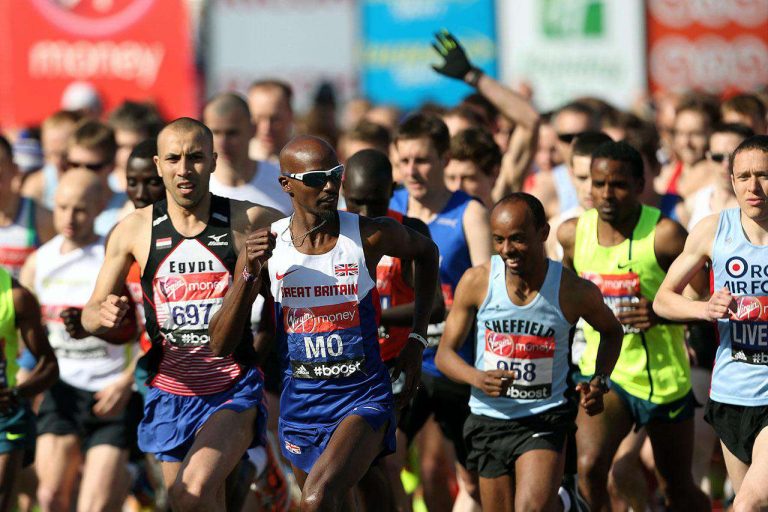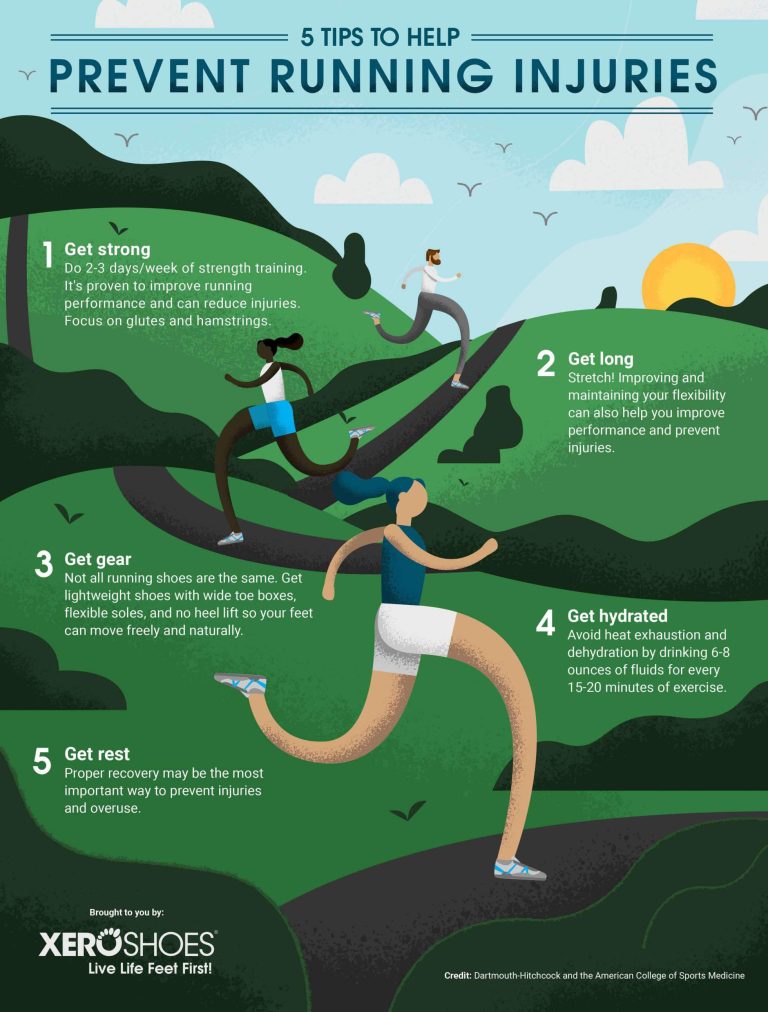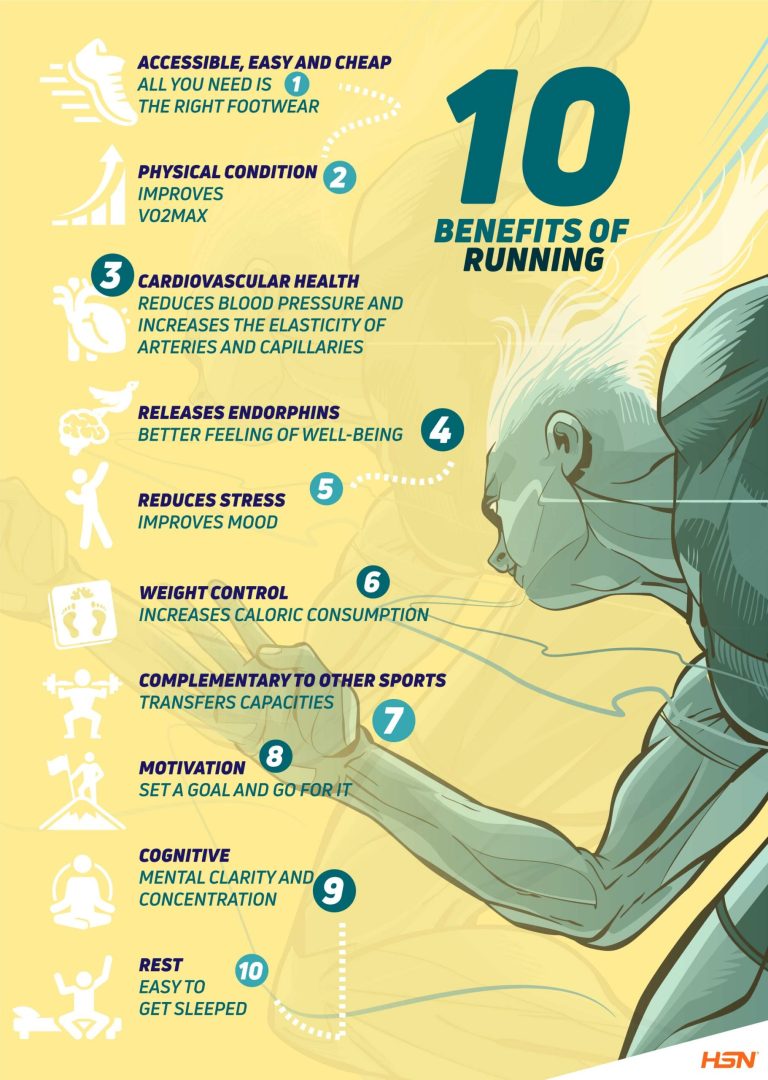Marathon Predicted Finish Time
To predict marathon finish time, consider training data, recent race performances, and current fitness level. Marathon finish time predictions are based on various factors such as past race times and current training consistency.
Running experts often use mathematical models and algorithms to calculate an estimated finish time for upcoming marathons. These predictions can help runners set realistic goals and tailor their training plans accordingly. By analyzing both quantitative and qualitative data, runners can make more informed decisions about pacing and strategy during the race.
Ultimately, understanding how to predict marathon finish time can lead to improved race performances and overall satisfaction with the running experience.
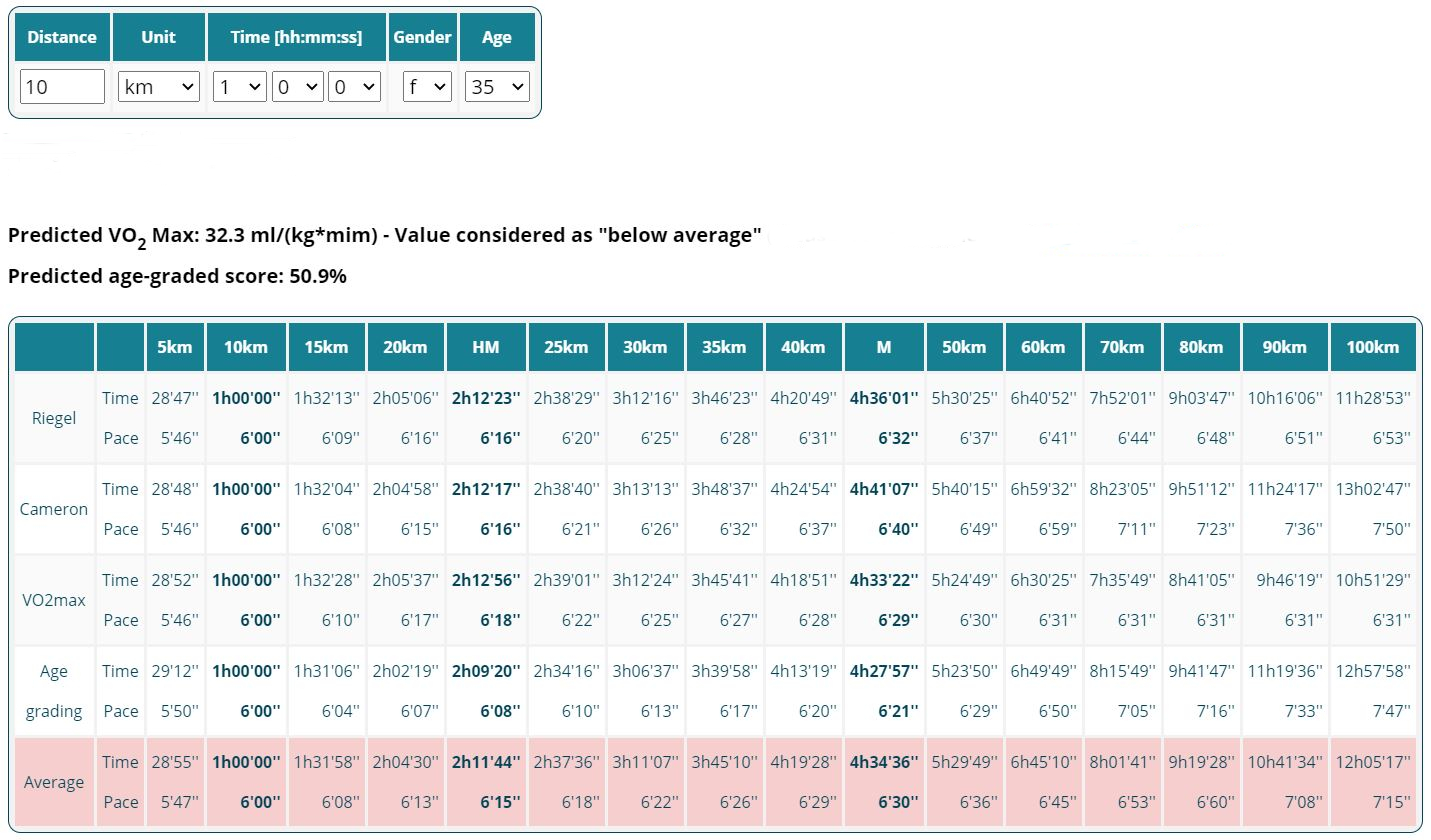
Credit: twitter.com
Factors Affecting Marathon Finish Time
Several factors can significantly influence a runner’s finishing time in a marathon. These factors encompass various aspects, from training routines to weather conditions. Understanding these influences is pivotal for runners seeking to optimize their performance in marathon events.
Training
Training plays a pivotal role in determining a runner’s marathon finish time. Diligent and structured training routines contribute to improved endurance, speed, and overall performance during the race. A well-designed training plan that incorporates long runs, speed workouts, and recovery periods is essential for enhanced marathon performance.
Age And Gender
Age and gender are influential factors that can impact marathon finish times. Generally, younger runners might achieve faster finish times due to their higher physical capacity and recovery rates. Additionally, gender can also affect finish times, with males typically demonstrating faster running times compared to females.
Course Difficulty
The difficulty of the marathon course can significantly influence a runner’s finish time. Courses with elevation changes or challenging terrains can slow down runners, leading to longer finishing times. Conversely, flat and fast courses enable runners to maintain a steady pace and potentially achieve faster finish times.
Weather Conditions
Weather conditions have a profound impact on marathon finish times. Extreme temperatures, humidity, and strong winds can impede a runner’s performance, potentially leading to slower finishing times. However, favorable weather, such as cool temperatures and light wind, can contribute to improved running conditions and faster finish times.
Calculating Predicted Finish Time
Predicting your finish time for a marathon is crucial for planning your race strategy. By calculating your predicted finish time, you can set realistic goals and track your progress throughout your training.
Using Previous Race Times
Using Training Paces
Using Race Time Predictors
— Calculating Predicted Finish Time Predicting your marathon finish time is crucial for effective race-day strategy.Using Previous Race Times
Utilize past race performances to estimate your future finishing time accurately.Using Training Paces
Determine your predicted time based on your training pace and effort levels.Using Race Time Predictors
Leverage online calculators or formulas specially designed for estimating race times.Training Strategies For Faster Finish Times
Building Endurance
Consistent long runs gradually increase distance to strengthen muscles.
Incorporating Speed Workouts
Interval training improves speed by alternating high and low-intensity bursts.
Proper Recovery
Rest days help prevent overtraining and ensure muscle repair.
Nutrition And Hydration
Eat balanced meals and stay hydrated for optimal performance.
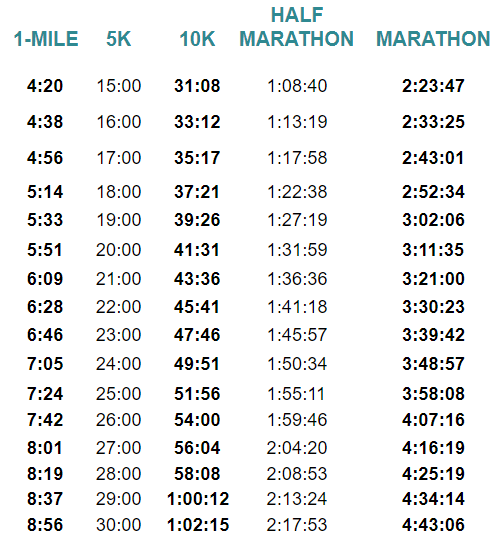
Credit: www.all-about-marathon-training.com
Common Mistakes That Affect Finish Times
Starting Too Fast
Starting a marathon too fast can lead to early burnout and negatively impact your overall finish time. It’s essential to pace yourself and conserve energy for the later stages of the race.
Not Fueling Properly
Inadequate nutrition and hydration during a marathon can significantly affect your performance. Failing to fuel properly can lead to fatigue, cramping, and a decrease in pace.
Lack Of Rest
Insufficient rest before a marathon can hinder your performance. It’s crucial to prioritize rest and recovery to ensure your body is prepared for the physical demands of the race.
Ignoring Mental Preparation
Underestimating the importance of mental preparation can impact your finish time. Mental fatigue and lack of focus can lead to decreased motivation and performance during the marathon.
Improving Your Marathon Finish Time
Improving your marathon finish time requires a combination of setting realistic goals, seeking professional guidance, monitoring your progress, and staying motivated. By following these strategies, you can enhance your running performance and achieve your desired results.
Setting Realistic Goals
Setting realistic goals is crucial when it comes to improving your marathon finish time. Before starting your training, take the time to evaluate your current fitness level and past race performances. Consider factors such as your current pace, endurance, and any previous injuries. This assessment will help you set challenging, yet attainable goals that are specific, measurable, achievable, relevant, and time-bound (SMART).
For example, instead of aiming to shave off hours from your marathon finish time, set a concrete goal to reduce your pace by a certain number of minutes per mile. Breaking down your target into smaller, manageable steps will make it more achievable and less overwhelming.
Seeking Professional Guidance
Seeking professional guidance from a running coach or an experienced marathon runner can provide valuable insights and training plans tailored to your individual needs. A professional can analyze your running technique, identify areas for improvement, and suggest specific strategies to help you achieve your marathon goals.
Additionally, a coach can help you develop a structured training plan that includes a balance of long runs, speed workouts, and recovery days. They can also provide guidance on proper nutrition and hydration, cross-training exercises, and injury prevention techniques.
Monitoring Progress
Monitoring your progress throughout your training is essential to track your improvements and identify areas where you may need to make adjustments. Use a running app or a GPS watch to monitor your pace, distance, and time during training runs.
Keeping a training diary can also help you monitor your progress. Record your running sessions, including distance, pace, and how you felt during and after the run. This information will allow you to evaluate your performance over time and make any necessary modifications to your training plan.
Staying Motivated
Staying motivated is crucial when striving to improve your marathon finish time. Find ways to keep yourself inspired and focused throughout your training journey.
One effective strategy is to set milestones along the way. For example, reward yourself after completing a challenging long run or achieving a new personal record. Celebrating these smaller victories will help maintain your enthusiasm and keep you motivated to continue pushing towards your ultimate goal.
Additionally, consider joining a running group or participating in virtual races to connect with other runners who share your dedication and passion. Surrounding yourself with like-minded individuals can provide valuable support, encouragement, and accountability.
Remember, improving your marathon finish time takes time, dedication, and consistency. By setting realistic goals, seeking professional guidance, monitoring your progress, and staying motivated, you can make significant strides towards achieving your marathon goals.
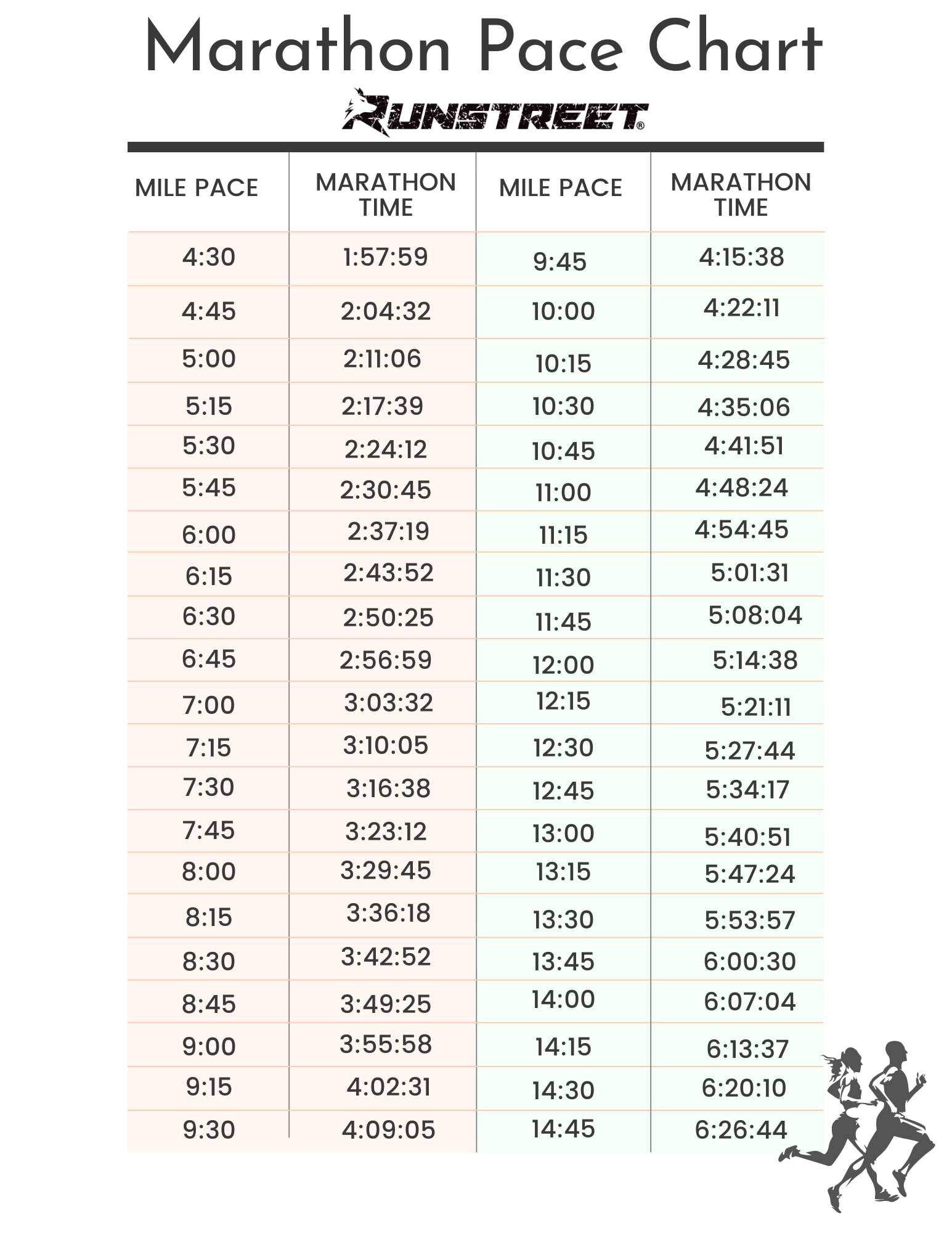
Credit: www.runstreet.com
Frequently Asked Questions On Marathon Predicted Finish Time
What Is A Predicted Finish Time In A Marathon?
A predicted finish time in a marathon is the estimated time it will take a runner to complete the race based on their current fitness level and training.
How Is A Predicted Finish Time Calculated For A Marathon?
A predicted finish time for a marathon is calculated by taking into account factors such as the runner’s previous race times, training intensity, and overall fitness level to provide an estimate of how long it will take them to complete the marathon.
Why Is Knowing A Predicted Finish Time Important For Marathon Runners?
Knowing a predicted finish time is important for marathon runners as it helps them set realistic goals, create a pacing strategy, and plan their training accordingly. This information allows runners to gauge their progress and make necessary adjustments to achieve their desired finish time.
Conclusion
In essence, predicting your marathon finish time is a valuable tool for setting realistic goals. By utilizing the appropriate training methods and paying attention to your body’s signals, you can work towards improving your pace and achieving your desired results.
Remember, every runner’s journey is unique, so trust in your progress and enjoy the process.

